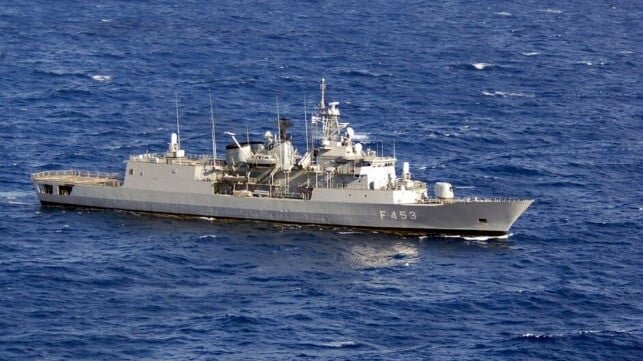Greece Takes Action to Stem Maritime Migration from North Africa
Greece’s government is seeking to close its doors to asylum-seekers from North Africa amidst a surge of maritime migration and a breakdown in talks with the militia that governs eastern Libya.
“The Greek government sends a message . . . to all smugglers and all their potential clients that the money they spend is completely wasted,” said Greek Prime Minister Kyriakos Mitsotakis in a statement.
Human smugglers in Libya have developed a new, long-distance human smuggling route departing Tobruk for the southern Greek islands. The 180-nautical-mile voyage is attracting passengers, especially migrants from Egypt, Eritrea, Sudan, Pakistan, Yemen and Bangladesh. Officials in Crete and its outlying islands say that these arrivals put strain on small local economies; more than 7,000 people have arrived on Greek shores on this route so far this year, and Greece has stated its plans to put a stop to it.
In late June, Prime Minister Mitsotakis ordered two destroyers to watch over waters near Libya and work with local militia forces to deter migration. This requires coordinating with authorities under Gen. Khalifa Haftar, the Benghazi-based warlord (and American citizen) who governs the eastern half of Libya. However, talks broke down before they could start: on Tuesday, Haftar’s government declared EU migration minister Magnus Brunner persona non grata and ordered him deported upon his arrival at Benghazi’s airport. Brunner’s counterparts from Italy, Greece and Malta received the same treatment. All had arrived to talk over migration issues, and Haftar’s government accused all of them of “flagrant contravention of established diplomatic norms and international convention.”
The details of the dust-up were not disclosed, but the reaction from Athens was swift. The following day, Mitsotakis announced legislation to close the borders to all asylum seekers from Libya. The bill will be introduced in parliament tomorrow, and if it passes, it will close down asylum processing for all maritime migrants from North Africa for an initial period of three months.
In response to the escalating maritime migration from North Africa, Greece is taking decisive action to protect its borders and deter human smugglers. With the development of a new smuggling route from Tobruk to the southern Greek islands, authorities are facing an influx of migrants from various countries, straining local economies and resources.
Prime Minister Mitsotakis has deployed naval forces to monitor the waters near Libya and collaborate with local militia to prevent further migration. However, talks with Gen. Khalifa Haftar’s government in eastern Libya have hit a roadblock, leading to a diplomatic standoff and the expulsion of EU migration officials.
In light of these developments, Greece is moving to close its borders to asylum seekers from Libya, signaling a tough stance against illegal migration. The proposed legislation aims to halt asylum processing for maritime migrants from North Africa for an initial three-month period, demonstrating the government’s commitment to safeguarding its borders and managing the migration crisis effectively.
By taking proactive measures and working with regional partners, Greece is addressing the challenges posed by maritime migration and sending a clear message to human smugglers and potential migrants that illegal crossings will not be tolerated. As the situation continues to evolve, the country remains focused on securing its borders and upholding international norms and conventions.

